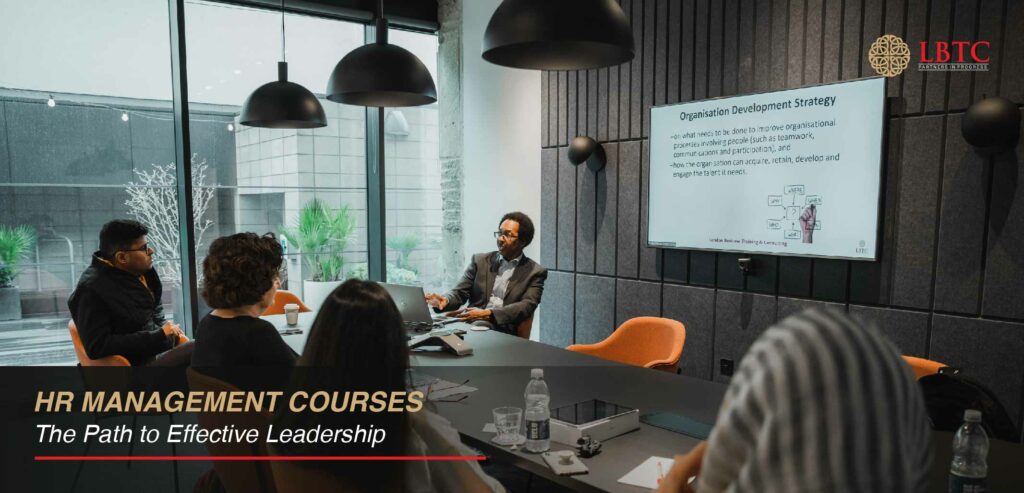
In this ever-changing business world, management is not limited to handling projects; it is expected to be simply interested in ensuring that targets are met. They have become the core and backbone of organisational success, often playing diverging roles, turning from strategists to people leaders. HR courses in this context serve as a pivot for managers to move in concert with their development around success in performance coupled with productive and motivated teams.
The Shift from Management to Leadership
Today’s workplace is more dynamic, diverse, and people-centric than ever. Employees want more than a paycheck—they seek a workplace that values their contributions, supports their growth, and aligns with their values.
As a manager, your ability to connect with your team on a human level is as critical as your technical skills. HRM courses empower you with tools to deal with difficult and complex interpersonal relations, gain trust, and create a working environment.
What Do HR Courses Offer Managers?
HRM courses are not aimed at only HR professionals; however, all such certification courses are relevant to everyone in leadership. Here’s what such managers can realise:
1. Understanding People Dynamics
Each team has different personality combinations, strength mix, and challenges. The HRM course prepares managers on how to move with these personalities. Learning strategies help unlock your team’s ability, from conflicts to holding down poor performers.
2. Legal Compliance and Ethical Compliance
The labour laws, ethics in the workplace, and compliance standards are a minefield for managers who are not familiar with them. HRM courses make grounds for the foundation of understanding such matters to avoid costly mistakes and maintain a safe environment and fairness in the workplace.
3. Performance Management and Coaching
Performance management is beyond having an annual appraisal, establishing clear expectations, providing regular feedback, and facilitating employee growth. HRM courses show how managers can manage this process constructively with performance reviews as development opportunities.
4. Diversity, Equity, and Inclusion (DEI)
A place of work in modern times is becoming diverse. Thus, managers should learn to manage inclusivity. HR Management courses put one into DEI principles to develop an environment where everyone’s contribution is respected and valued.
5. Skills in Change Management
A business that does not change is indeed a dead business. Change is never easy, and most employees regularly shudder at the thought of going through it. With HRM training, managers develop skills to help team members to face change, be it the new process, technology or leadership structure.
Why HRM Skills Are a Must-Have?
It’s true – working with people is not easy. You are talking about different personalities and motivations that even sometimes challenge you. Sometimes, this part of your job can be overwhelming unless you have the necessary skills. That’s just one part of HRM courses-de-alienating the complexities of managing people into actionable strategies for your immediate application.
Furthermore, organisations also treasure managers who can walk the tightrope between results and healthy workplace culture. Thus, investing in HRM training will help you develop your leadership skills and give you an edge to become a more efficient and better-rounded manager.
How to Choose the Right HR Courses?
Many HR courses do not possess equal worth. When choosing a particular course, look for the following factors:
• Relevance: It should fit into your role and industry concerning the course content.
• Flexibility: Find online or hybrid options if you are careful about the schedules.
• Expert: Courses should be given by very professional individuals or established institutions.
• Practical: Focus on the programs targeted towards real applications instead of solely theoretical ones.
Conclusion:
The Management of Human Resources is no longer the unique function of the HR Department. In this world where people are the organisation’s greatest assets, managers must also be equipped with the skills to lead with empathy, understanding, and strategy.
Investment in courses in HR does not just mean checking a professional developmental box; it is about being the kind of leader who inspires trust, facilitates growth, and propels successful outcomes. So, do take that step. Equip yourself with the tools to manage with confidence and lead with heart.
After all, great managers don’t just manage work; they nurture people. And that’s where the magic happens.

Leave a Reply